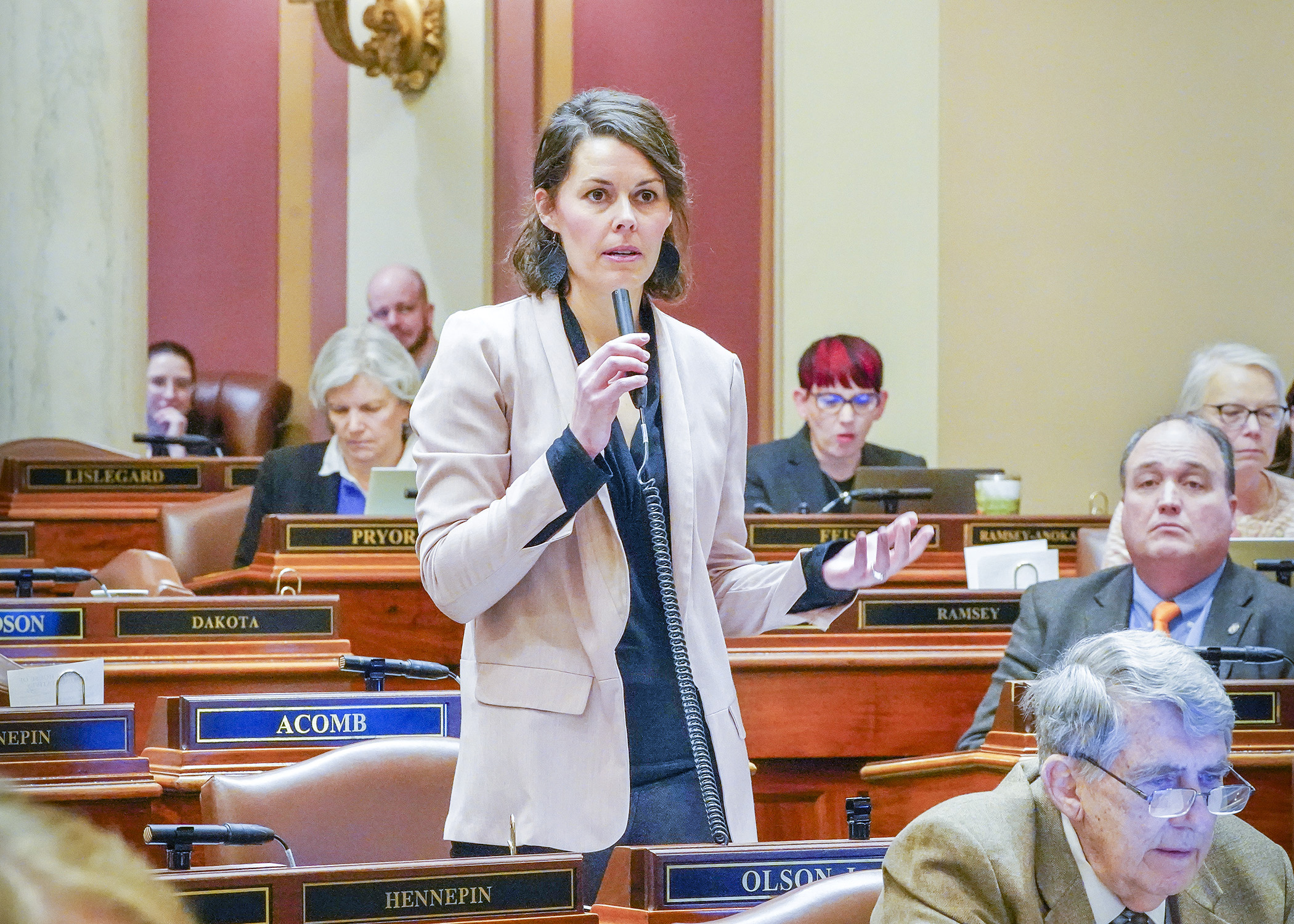House passes statewide paid sick leave mandate after vigorous debate

— UPDATED at 11:55 p.m.
More than a third of working people in Minnesota currently have no access to paid time off when sick or caring for a sick family member. They lose wages — and risk losing their job — when calling out sick.
That state of affairs may be coming to an end.
The House passed HF19, as amended, 69-54 late Thursday after more than seven hours of discussion.
Heading to the Senate, the bill would mandate nearly all employers in Minnesota provide paid sick leave to their employees.
“[This bill] ensures that the 900,000 Minnesotans who currently don’t have access to a single paid day off in our state … would be able to have that human dignity of being able to stay home,” said Rep. Liz Olson (DFL-Duluth), the bill sponsor.
As spelled out in the bill, almost all Minnesota workers would become eligible for what is termed ”earned sick & safe time” upon logging 80 hours on the job. Paid sick time would be accrued at the rate of one hour for every 30 hours worked; up to 48 hours could be accrued per year. Any unused hours would be available to be rolled over to a new calendar year, with a maximum of 80 hours to be banked at any given time. These hours would be paid at the same rate as normal hours worked.
Olson also noted that these numbers would be a floor and nothing in the bill would prohibit employers from offering more generous benefits to their workers.
Two categories of workers would not be covered by the mandate: employees of the federal government and independent contractors. All other employers would have until Jan. 1, 2024, to begin offering this benefit to their employees.
Earned sick and safe time could be utilized by workers for multiple reasons. These would include: needing treatment or care regarding physical or mental illness; absence owing to domestic abuse, sexual assault, or stalking; and quarantine due to exposure to an infectious disease. An employee could claim paid time off if these situations applied to either themselves or to a family member.
The Department of Labor and Industry would be granted mechanisms for enforcement, most notably the ability to levy fines on employers who fail to abide by the terms of the proposed legislation. Penalties could be as high as $10,000 per violation.
Earned sick and safe time has been passed in four municipalities — Minneapolis, St. Paul, Duluth, and Bloomington — as well as over a dozen states. The DFL has strived for years to expand paid sick leave across the state’s workforce, having first introduced a bill for this purpose in 2019.
The costs to the state for the upcoming biennium would total around $5.5 million, per a fiscal note.
Republicans questioned the wisdom of creating a one-size-fits-all mandate for employers throughout the state.
Rep. Dave Baker (R-Willmar) noted that when Duluth passed earned sick and safe time in 2018, the ordinance did not cover seasonal workers nor businesses with fewer than five employees.
He unsuccessfully offered several amendments that would have applied the bill to workplaces with only 26 or more workers; withheld the benefit from seasonal workers; and obligated workers to be on the job for at least 90 days before utilizing the benefit.
Two amendments were adopted via voice votes — one offered by Olson and one brought forth by Rep. Andrew Myers (R-Tonka Bay).
Olson’s would allow a building and constructions trade labor union to waive their members’ rights to earned sick and safe time while negotiating a collective bargaining agreement.
Myers’ amendment would instruct the department to draft and distribute a form for employers to inform their employees of their rights under this bill.
Related Articles
Search Session Daily
Advanced Search OptionsPriority Dailies
Ways and Means Committee OKs House budget resolution
By Mike Cook Total net General Fund expenditures in the 2026-27 biennium will not exceed a hair less than $66.62 billion.
That is the budget resolution approved Tuesday by the House Ways...
Total net General Fund expenditures in the 2026-27 biennium will not exceed a hair less than $66.62 billion.
That is the budget resolution approved Tuesday by the House Ways...
Minnesota's budget outlook worsens in both near, long term
By Rob Hubbard It looks as if those calling for less state spending could get their wish, judging from Thursday’s release of the February 2025 Budget and Economic Forecast.
A state su...
It looks as if those calling for less state spending could get their wish, judging from Thursday’s release of the February 2025 Budget and Economic Forecast.
A state su...